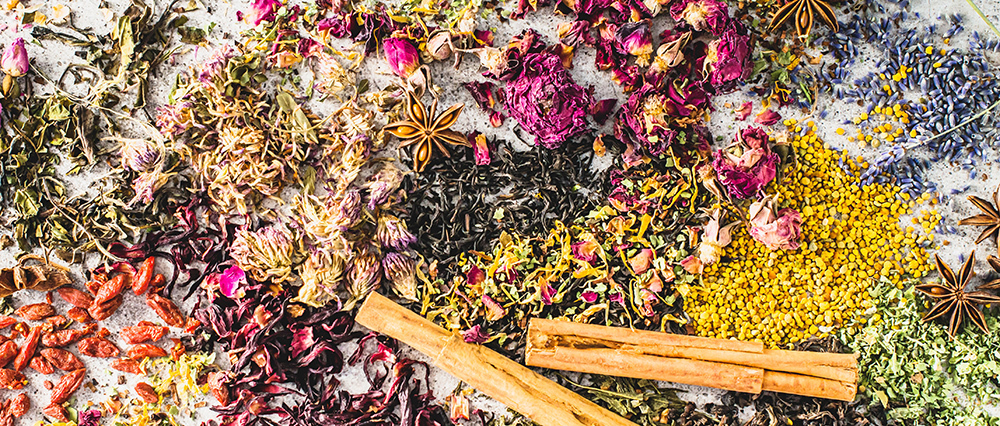Food & Drink
Old Sage
Homespun medicines are just what the doctor ordered.
Even as science and technology fling us into the future, it seems like more and more people are harkening back to the past. In the food world, that’s exhibited through the farm-to-table dining movement, the rise of Prohibition-era cocktails, and, now, the resurgence of grassroots apothecaries to aid common ailments in a natural, old-fashioned way with many herbs and spices commonly found in your kitchen or garden.
Herbal medicine dates back hundreds of thousands, if not millions, of years—as far as the papyrus scrolls of Ancient China and Egypt, on which its abilities to treat and prevent diseases are noted. Sure, some of it is snake oil, and they’re hardly panaceas, but after falling out of favor for chemical drugs in the 1800s, the time-honored practice is regaining popularity, with some 80 percent of the planet now using herbalism as a primary form of healthcare.
In Baltimore, local makers are handcrafting medicinal blends of herbs and spices, too. A touch of turmeric here, a dash of ginger there. A sprig of rosemary, a sprinkle of chamomile. Through teas, tinctures, and tonics, these homemade remedies are helping us heal our bodies without Tylenol or a trip to the doctor. As medical costs continue to skyrocket, herbal medicine “has really bloomed in recent years,” says herbalist Jen Ehrhardt of the longstanding Zensations in Hampden, where she makes a medley of herb-infused products such as cordials and teas. “People are really being called to the plants right now. They’re looking for new ways to take care of themselves, and others, naturally.”
That was the case with Katelyn Jarkowiec of Hey Thanks! Herbal Co.
“I went through a terrible breakup that did a number on me emotionally, which then started to play out physically,” she says. After murky medical diagnoses, she researched traditional Chinese medicine and, before long, started slowly feeling better. She now uses homegrown and foraged herbs and flowers in everything from bitters for better digestion to elixirs for stress relief and cramps. “They’re not cure-alls,” she says, “but you can use plants to give your body gentle nudges towards being healthy.”
Sarah Acconcia Norris of Juniper Culinary Apothecary even hopes to integrate these important ingredients into our way of eating. “Food is medicine, and nature makes everything we need,” says the former chef, who used natural remedies to heal after restaurant-industry burnout. Her Mt. Vernon Marketplace shop is an old-world treasure trove of superfood spices to be stocked on your kitchen shelves. “I’m not a doctor,” she says, “but we can still make these ingredients accessible, easy, and delicious to eat. This isn’t about diet culture. It’s about supporting your body. It’s about helping you be your best self.”
